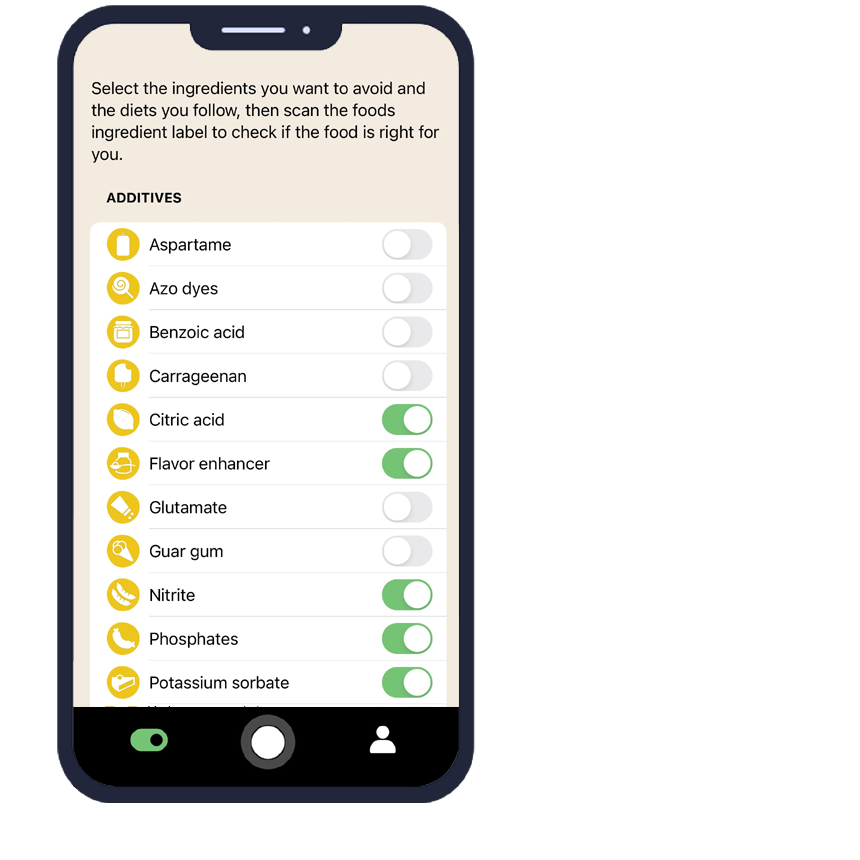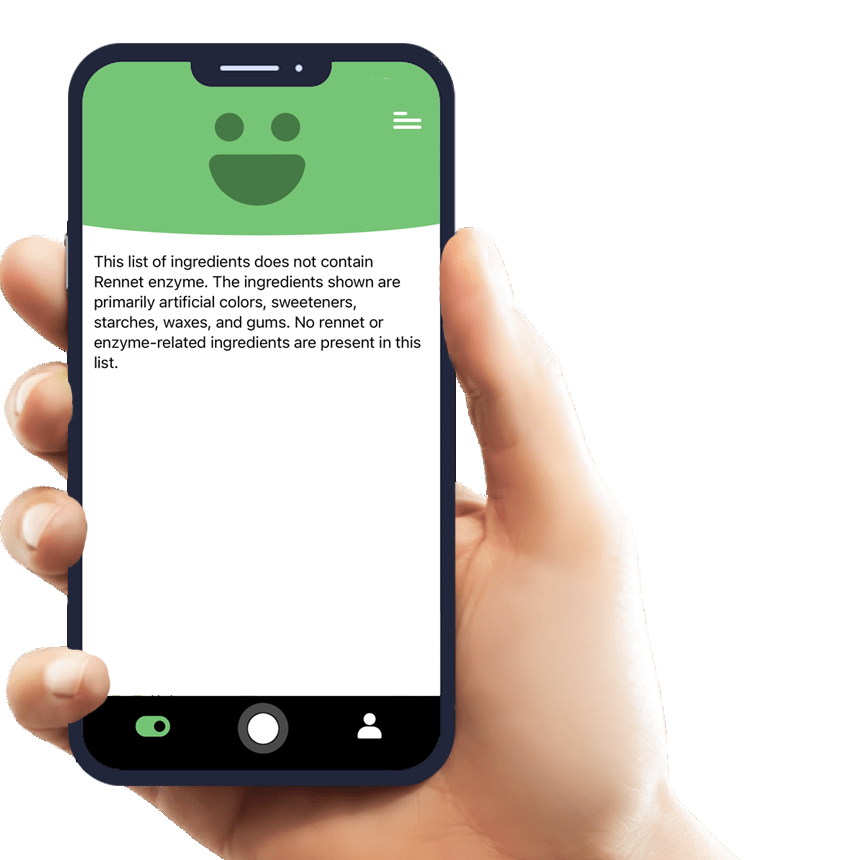Everything You Need to Know About Sunflower and How AI Eat This Can Help
Sunflower, derived from the common sunflower plant, appears in countless food products as both an ingredient and potential allergen. For individuals with specific dietary restrictions, allergies, or health concerns, identifying Sunflower in food products can be challenging and time-consuming. The AI Eat This mobile app revolutionizes this process by instantly scanning ingredient lists in any language, helping consumers make informed decisions about their food choices.
Whether you're managing a Sunflower allergy, following specific dietary guidelines, or simply want to know what's in your food, understanding this common ingredient is essential for maintaining your health and well-being.
What Is Sunflower and Where Is It Used?
Sunflower refers to various products derived from the sunflower plant (Helianthus annuus), most commonly sunflower oil, sunflower seeds, and sunflower lecithin. These ingredients serve multiple purposes in food production, from cooking oils to emulsifiers and nutritional supplements. Sunflower oil is particularly popular due to its neutral taste and high smoke point, making it ideal for cooking and food manufacturing.
In processed foods, Sunflower appears in numerous forms and may be listed under various names on ingredient labels. Sunflower lecithin, for example, often replaces soy lecithin as an emulsifier in chocolate, baked goods, and dietary supplements. This makes it crucial for consumers to recognize all potential names and forms of Sunflower when reading food labels.
Common Foods Containing Sunflower
Sunflower ingredients can be found in a wide variety of food products, often where consumers least expect them. Here are some common foods that may contain Sunflower:
- Cooking oils and margarine
- Salad dressings and mayonnaise
- Baked goods including bread, cookies, and crackers
- Chocolate and confectionery products
- Processed snack foods and chips
- Nutritional supplements and protein bars
- Baby foods and infant formulas
- Frozen and prepared meals
Is Sunflower Safe? What Does the Research Say?
Regulatory Approvals and Guidelines
The U.S. Food and Drug Administration (FDA) recognizes sunflower oil and related products as Generally Recognized as Safe (GRAS) for use in food products. Similarly, the European Food Safety Authority (EFSA) has approved various sunflower-derived ingredients for use in European food products, establishing safety guidelines for their consumption.
The World Health Organization (WHO) acknowledges sunflower oil as a source of healthy unsaturated fats when consumed as part of a balanced diet. These regulatory approvals indicate that Sunflower ingredients are generally safe for the majority of the population when consumed in normal amounts.
Sunflower Allergy and Intolerance Risks
While Sunflower is generally safe for most people, some individuals may experience Sunflower allergy or intolerance. Sunflower allergy, though relatively uncommon, can cause symptoms ranging from mild skin reactions to severe anaphylactic responses in sensitive individuals. Cross-reactivity with other allergens, particularly other seeds and nuts, may also occur in some people.
Symptoms of Sunflower allergy may include hives, digestive issues, respiratory problems, or in severe cases, anaphylaxis. Individuals with known seed allergies or those who have experienced reactions to Sunflower products should consult with healthcare professionals and maintain strict avoidance of Sunflower-containing foods.
How AI Eat This Helps You Avoid Sunflower
The AI Eat This app transforms the challenge of identifying Sunflower in food products into a simple, instant process. By using advanced artificial intelligence technology, the app scans ingredient lists through your smartphone camera and immediately identifies Sunflower and its various forms, regardless of the language on the packaging.
Users can set personalized dietary filters within the app, allowing it to flag products containing Sunflower automatically. This feature is particularly valuable for individuals managing dietary restrictions, as it eliminates the need to manually read and interpret every ingredient label. The app's database recognizes alternative names, chemical designations, and regional variations of Sunflower ingredients.
The app's multilingual capabilities make it especially useful for travelers or those purchasing imported foods, ensuring that language barriers don't compromise dietary safety. With AI Eat This, managing Sunflower avoidance becomes effortless and reliable, providing peace of mind for health-conscious consumers.
Who Should Avoid Sunflower?
Several groups of people may need to avoid or limit Sunflower in their diets. Individuals diagnosed with Sunflower allergy must strictly avoid all forms of Sunflower ingredients to prevent allergic reactions. Those with seed allergies or multiple food allergies may also need to avoid Sunflower due to potential cross-reactivity.
People following specific dietary protocols for medical reasons, such as certain elimination diets or therapeutic nutrition plans, may need to avoid Sunflower temporarily or permanently. Additionally, some individuals choose to avoid Sunflower for personal dietary preferences or concerns about processing methods.
Healthcare providers may recommend Sunflower avoidance for patients with specific digestive conditions or those undergoing allergy testing. In these cases, careful label reading and the use of tools like AI Eat This become essential for maintaining dietary compliance and health.
Tips for Maintaining a Sunflower-Free Diet
Successfully avoiding Sunflower requires vigilance and the right strategies. Always read ingredient labels carefully, as Sunflower can appear under various names including sunflower oil, sunflower lecithin, sunflower seeds, or sunflower protein. When dining out, inform restaurant staff about your dietary restrictions and ask about cooking oils and ingredient sources.
Focus on whole, unprocessed foods when possible, as these are less likely to contain unexpected Sunflower ingredients. When shopping for packaged foods, use the AI Eat This app to quickly scan products and identify potential Sunflower content before making purchases.
Consider preparing more meals at home using Sunflower-free ingredients and cooking oils. Keep a list of safe, verified products and brands that don't use Sunflower ingredients. Stay informed about food recalls and ingredient changes by following the Centers for Disease Control and Prevention and other health authorities for the latest food safety information.
Conclusion
Understanding Sunflower and its presence in food products is crucial for individuals with allergies, intolerances, or specific dietary restrictions. While Sunflower ingredients are generally safe for most people, those who need to avoid them face the ongoing challenge of identifying these ingredients in an increasingly complex food supply.
The AI Eat This app provides an innovative solution, making it easier than ever to identify and avoid Sunflower in food products. With its advanced scanning technology and personalized filtering capabilities, the app empowers consumers to make informed food choices quickly and confidently.
Take control of your dietary health today – Download AI Eat This for free testing today! Experience how technology can simplify your food choices and support your dietary goals with just a simple scan.

70 filters
With over 70 filters, you can easily avoid certain ingredients and follow your dietary preference.

Paleo

Pescetarian

Ultra-processed food

Vegan







































































